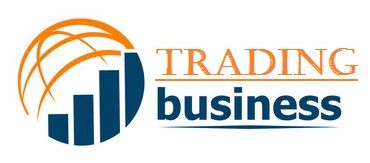If you are an investor, you know that markets can be unpredictable. Market volatility can lead to confusion and make it difficult to choose the right investments. In times like these, it is important to have an investment strategy that can provide stability and flexibility. One such strategy is investing in hybrid funds. These funds are a type of mutual fund that invests in both equity and debt instruments.
What are hybrid funds?
Hybrid funds, or balanced funds, are mutual funds that invest in equity and debt instruments. These funds aim to provide you with the benefits of both asset classes. Equity investments can provide higher returns over the long term, while debt investments can provide stability and generate income. By investing in both, hybrid funds can offer a balanced portfolio that can generate higher returns while minimizing risks.
How do hybrid funds work?
Hybrid funds invest in a mix of equity and debt instruments based on the fund’s investment objectives. Equity investments can be in the form of stocks, while debt investments can be in the form of bonds, government securities, or other fixed-income instruments. The percentage of equity and debt investments in the fund depends on its investment objective. For instance, a balanced fund with a higher allocation to equity investments is considered more aggressive than one with a higher allocation to debt investments.
Why should you choose hybrid funds when markets are unpredictable?
-
Diversification
Hybrid funds invest in both debt and equity instruments, which provides diversification. This means that the fund’s returns are not entirely dependent on the performance of one asset class. Investing in a mix of assets spreads the fund’s risk, which can help reduce the impact of market volatility.
For instance, during market downturns, equity investments may perform poorly, but the debt portion of the portfolio may provide stability. On the other hand, during market upswings, equity investments may perform well, which can potentially provide growth to the portfolio. Thus, investing in a hybrid fund can help to balance the portfolio returns and risk.
-
Stable returns
Debt instruments offer stable returns, making hybrid funds less volatile than pure equity funds. Even when equity markets are performing poorly, debt instruments can help to stabilize the fund’s returns. This stability can help you stay invested in the fund during market downturns.
-
Potential for higher returns
While debt instruments offer stability, equity investments offer the potential for higher returns. By investing in a mix of assets, hybrid funds can potentially generate higher returns than pure debt funds. In addition, the fund manager can adjust the fund’s allocation based on market conditions, which can help to maximize returns.
-
Flexibility
Hybrid funds offer flexibility as they can adjust their allocation based on market conditions. During market downturns, the fund manager can increase the allocation to debt instruments, which can help to reduce the fund’s volatility. Similarly, during market upturns, the fund manager can increase the allocation to equity instruments to maximize returns.
-
Tax benefits
Hybrid funds also offer tax benefits to you. The tax implications of investing in hybrid funds depend on the fund’s asset allocation. Suppose the fund has a higher allocation towards equity instruments. In that case, it will be considered an equity fund for tax purposes and taxed accordingly. Similarly, if the fund has a higher allocation towards debt instruments, it will be considered a debt fund for tax purposes and taxed accordingly. Thus, investing in hybrid funds can provide tax efficiency based on asset allocation.
Conclusion
Investing in hybrid funds can be a good choice when markets are unpredictable. By investing in a mix of equity and debt instruments, hybrid funds offer you a balanced investment option that aims to balance returns with risk. However, as with any investment, it is important to research the fund’s investment objectives and track record before investing.

